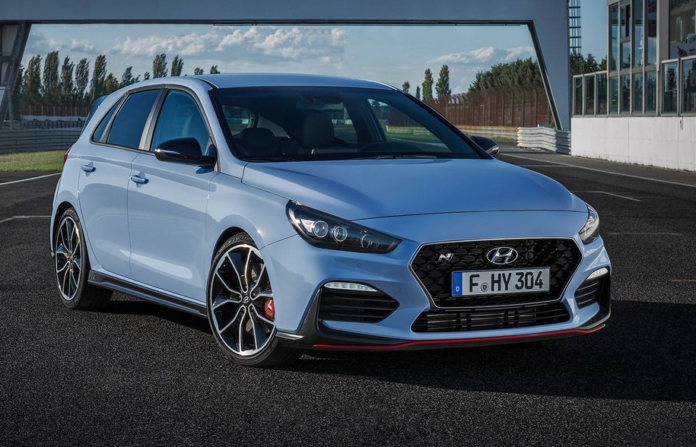04/05/2018 The value for money Hyundai i30 is not a car that sets the pulse racing – but stick the letter N on it… and hey presto… its bonkers!
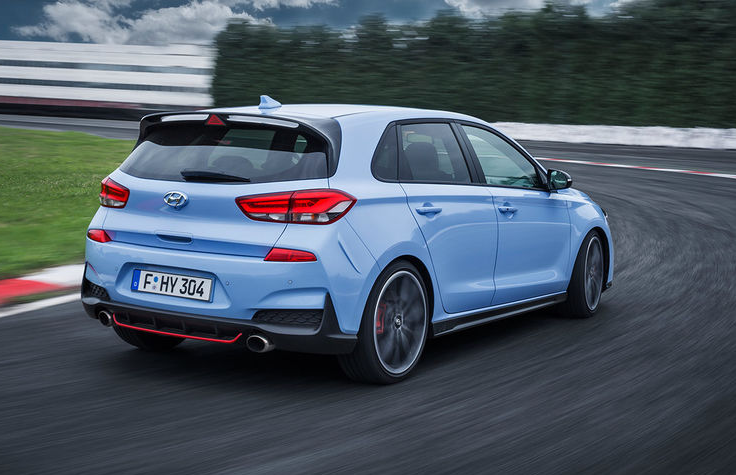
With SUVs taking over the planet there is life in the old hatchback yet thanks in the main to a number of fresh hot versions that grab the eye. The Korean giant Hyundai is not one of the manufacturers that instantly springs to mind when it comes to performance cars, that is unless you are into rallying. Sadly rally cars are so far removed from the cars they pretend to be and merely a body shell on top of a racecar. Hyundai in recent years has let down its hair and started work on a new range of performance engines. One of these units has found its way in to the humble and popular i30. Powering the front wheel drive i30N is a 2 litre T-GDI turbocharged direct injection petrol engine with an over-boost function. On tap there is 250hp/353nm rising to a maximum of 275hp/378nm on over-boost and this makes the i30N hot, in fact very hot. I30N sits on 19 inch rims and has low profile Pirelli tyres.
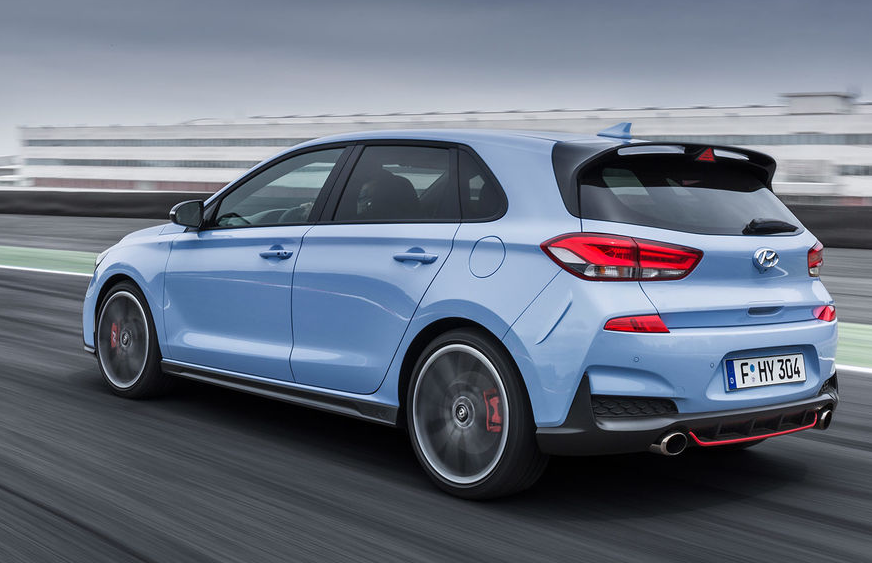
The ride is variable and ranges from firm to track firm – a polite way of saying that at it’s hardest it will rattle your fillings on anything other than smooth surfaces. High performance brakes feature and they look the part too with the letter N painted in white on the red calipers reinforcing the car’s performance identity. Hyundai has a few key former Audi and BMW people in its ranks including the former head of BMW’s M engineering division and their influence is being seen more and more with every new model. Exterior styling is subtle with a large black tailgate spoiler blending in with the tinted glass. A red stripe (obligatory on a VW GTI) set low on the apron at the front and an N badge on the large grille aren’t that shouty and border on subtle for a hot hatch. The flanks tell you nothing of the car’s performance potential while at the rear the two exhaust pipes are the only real clue to the amount of power the little beast can deliver. The N sits some 8mm lower than the standard i30.
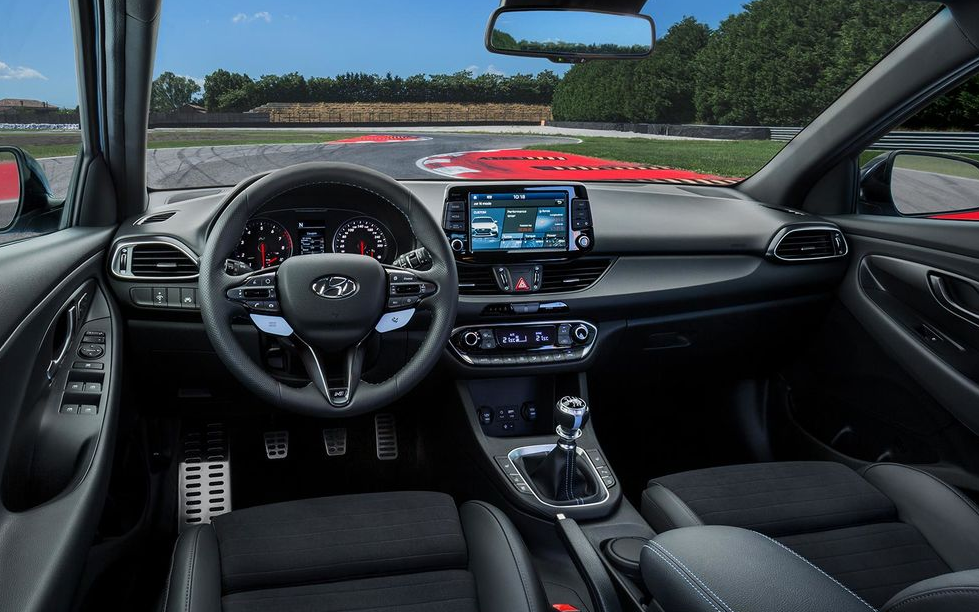
Inside the cabin the front sports seats are supportive and have a good range of adjustment. The sports steering wheel and gearshift for the six speed manual are nice. There is the i30’s 8 inch centre dash touch screen and also the i30’s plastic dashboard that shows where the money was saved in production. The i30 hatch starts from just over twenty grand.
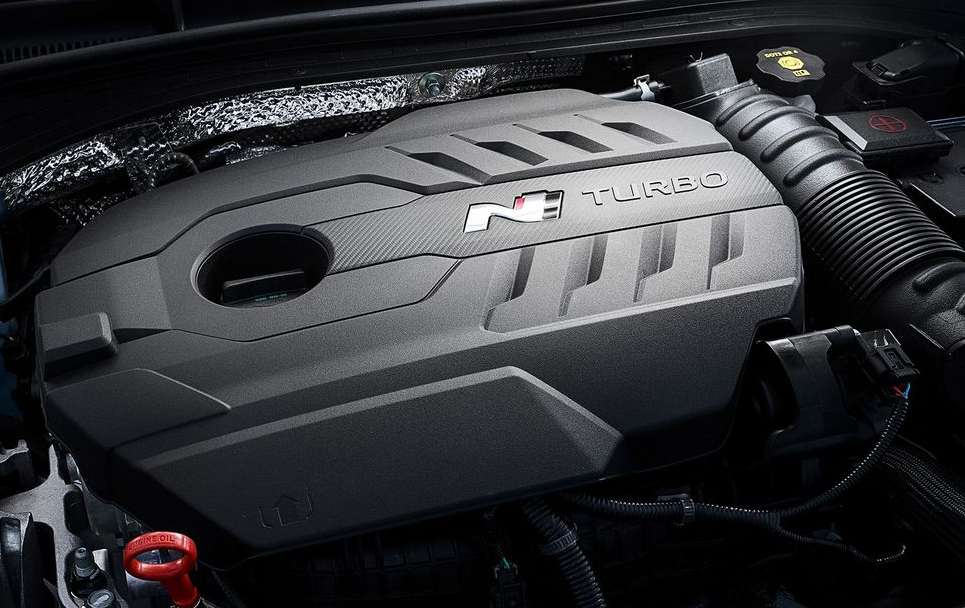
On the road there are five driving modes to choose from ranging from eco, normal, sport, N custom and N. The parameters changed include the throttle response, stability control, steering weight, rev matching intensity of the gearshifts and suspension stiffness. N mode delivers the most powerful performance from the engine and spine tingling barps and parps sounds from exhaust from the engine’s over run. These modes are activated via steering wheel mounted thumb buttons. The N mode button – isn’t it a remarkable coincidence BMW has an ‘M’ button on its performance cars on the wheel too. With a second press of the BM… sorry Hyundai N button you can activate your own N custom settings this lets you alter the limited slip differential and exhaust note. Hyundai’s electronic diff is called the N Corner Carving Differential and it works really well. The kid in me set the N custom mode the sport exhaust note and the engine normal with rev matching sport gearshifts. The Korean car in N mode is full on ballistic missile and a terrific plaything. In all bar eco the car blips the throttle on down shifts and depending on what way the exhaust note is set up it can be a wonderfully entertaining and grin inducing thing to do. The driving experience is compromised by the weighty variable assistance power steering. In normal mode it is too heavy and needs too much input during day to day driving. 0-100km/h takes 6.1 seconds and top speed is 250km/h.
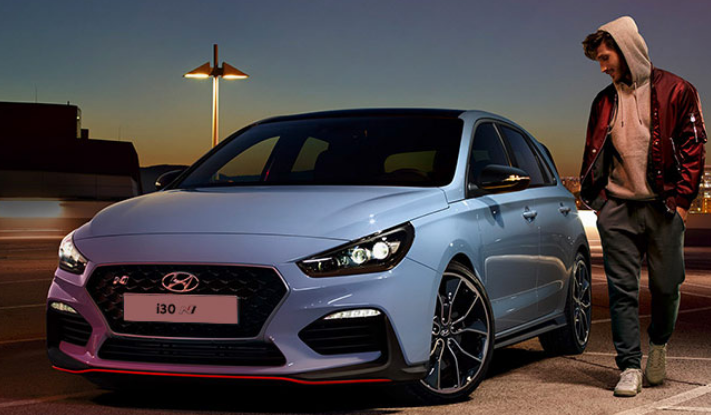
Apart from the plasticy interior especially when compared to the less powerful Golf GTI, poor sound insulation (weight saving) and the quick emptying 50 litre fuel tank there are no downsides. The performance 2 litre obviously drinks the juice – even when driven in eco mode, but it delivers big on entertainment. LED headlights, electric front seats with memory (driver’s) and great connectivity are some of the standard kit on the well equipped car. Emissions are 163g/CO2 (tax band D), average fuel consumption is 7.1L/100km and annual motor tax is €570. An entry i30N is available in some markets but Irish buyers get the performance version with all the bells and whistles, and over-boost. Hyundai’s recommended retail price is €39,995 and for the cash you get a lot of performance compared to its rivals. The Hyundai i30N, N is for naughty! Michael Sheridan


